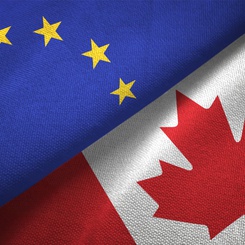The COVID-19 pandemic is sweeping the world, resulting in over 290,000 cases and 12000 deaths so far [1]. In contrast, the SARS epidemic of 2003 infected 8096 people and resulted in 774 deaths [2]. To fight the pandemic, governments around the world are confining people to their homes and ordering a total shutdown of social activity, including the shuttering of schools, universities, and all kinds of leisure activities. The shutdown in turn is having a deleterious effect on economic activity. Financial markets have turned fearful, with equity markets collapsing. For example, the S&P 500, which was trading at a level of 3250 in the beginning of 2020, was closed at 2398 on March 18th, an unprecedented collapse of 26%. The question in everyone’s mind is the likely impact of the pandemic on the world economy and the corporate sector.
The most recent economic crisis faced by the world was the financial crisis of 2007 and 2008. As the name suggests, the financial crisis started in the financial sector with the collapse of financial institutions. The weakness in the financial sector soon spread to the rest of the economy because of tightened credit supply, resulting in a recession. In contrast, in the current crisis, real economic activity across the world has come to a standstill, which in turn is causing financial markets to collapse. Unlike the financial crisis of 2007 where real economic activity was ongoing, and. people still had jobs and money to spend, the current situation is unprecedented and economic activity is severely diminished. With people confined and unable to spend money on goods and services, businesses have reacted by shutting down production. With no production, people are worried about their job security and unwilling to spend money, perpetuating a vicious cycle. To quote an adage from economics, one person’s spending is another person’s income. That relationship, between spending and income, consumption and production, is at the core of how an economy works.
The pandemic and the subsequent lockdown have directly affected some industries more than others especially entertainment, travel, hotels and restaurants. It has hit small businesses and shops particularly hard. The result will be a sharp fall in activity in the first half of this year. Many households and businesses are also likely to run out of money soon. Given low interest rates in the past few years, corporations have taken on too much debt. A recent OECD report says that at the end of December 2019 the global outstanding stock of non-financial corporate bonds reached an all-time high of $13.5tn, double the level in real terms against December 2008. Further, the report notes that compared with previous credit cycles, today’s stock of corporate bonds has lower overall credit quality, longer maturities, inferior covenant protection — bondholder rights such as restrictions on future borrowing or dividend payments — and higher payback requirements. In the face of a recession, lower quality borrowers who have overextended themselves will be unable to service the debt or roll it over, exacerbating the recession.
To stave off the crisis, central banks and governments across the world have been reacting. Most central banks have announced cuts in their interest rates, the rate at which they lend to banks. Central banks have also announced other measures to inject liquidity into the system like asset repurchases. These steps make sure that the financial system remains well functioning and does not lack liquidity. However, these measures are not available for households and corporates. Governments across the world have announced various steps to help businesses. The French president, Emmanuel Macron, recently announced measures worth €300 billion to guarantee the loans of businesses and provide relief from taxes, expenses and social charges for the next three months. The final piece of the puzzle is to assist households to both compensate them for lost income and provide an incentive to spend money. Such measures have not yet been finalized but are likely to take the form of “helicopter money”, which literally involves sending a cheque to each household. President Trump in the US is proposing a $1000 cheque to each American household at a total cost of somewhere between $500 billion to $1 trillion. Given the unprecedented situation facing the world, there is still a question mark over the efficacy of these measures.
When discussing how the pandemic will impact the economy, we all tend to ignore an important long-term effect. The pandemic has forced governments to shut schools and universities thus curtailing the education of children and thus the development of human capital. Given the importance of human capital for modern economies, this can be a serious loss for future generations. At the end of the day, the first priority of governments faced with a crisis of this scale should be to ensure that its citizens are healthy and to help normal life, especially for children, resume quickly. We must all take steps to support the measures proposed by health officials to ensure that it is achieved as soon as possible. Be safe.
References
-
“Novel coronavirus (COVID-19) situation”. World Health Organization. https://experience.arcgis.com/experience/685d0ace521648f8a5beeeee1b9125cd. Retrieved on March 23rd, 2020.
-
“Summary of probable SARS cases with onset of illness from 1 November 2002 to 31 July 2003”. World Health Organization. https://www.who.int/csr/sars/country/table2004_04_21/en/. Retrieved on March 19th, 2020.









